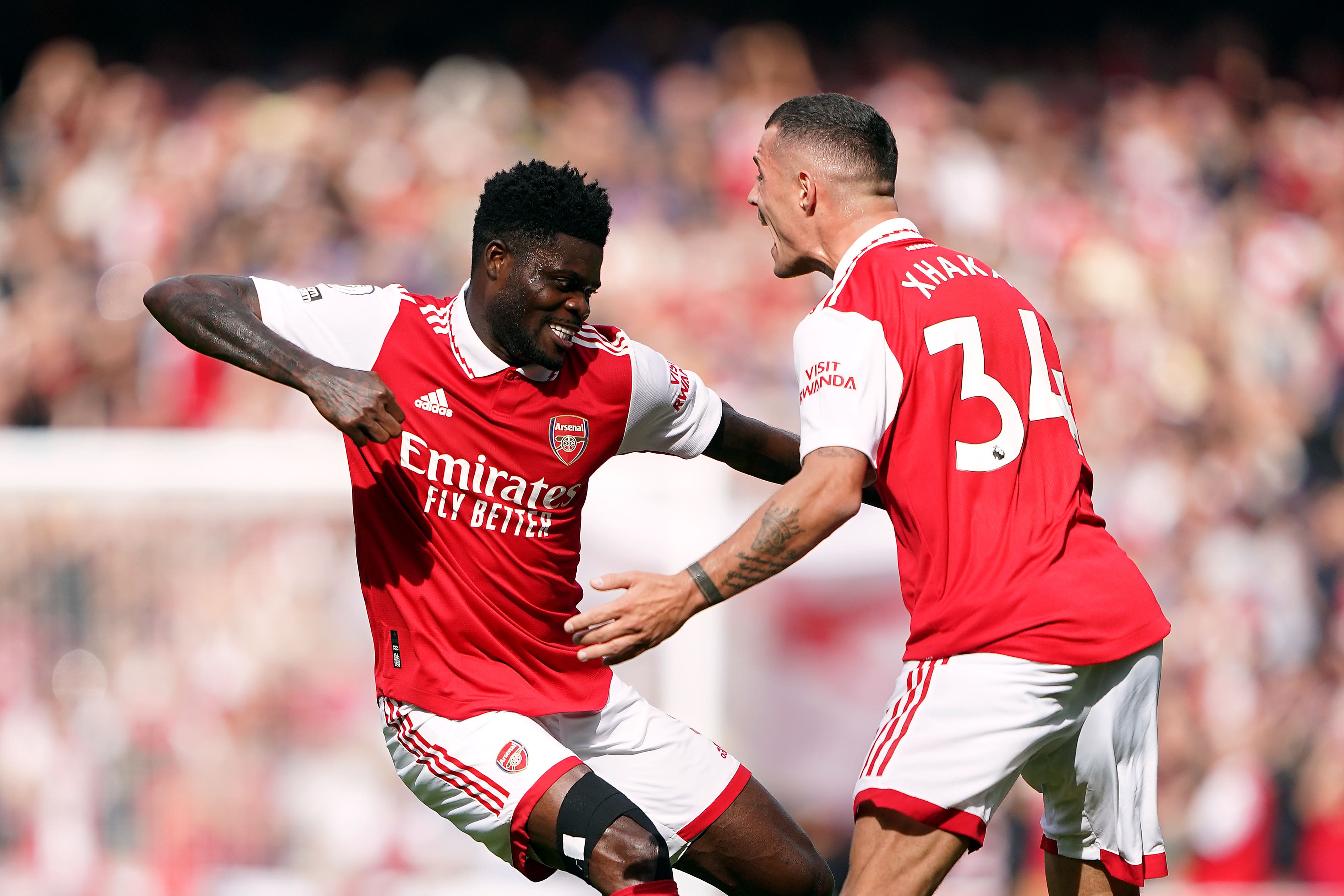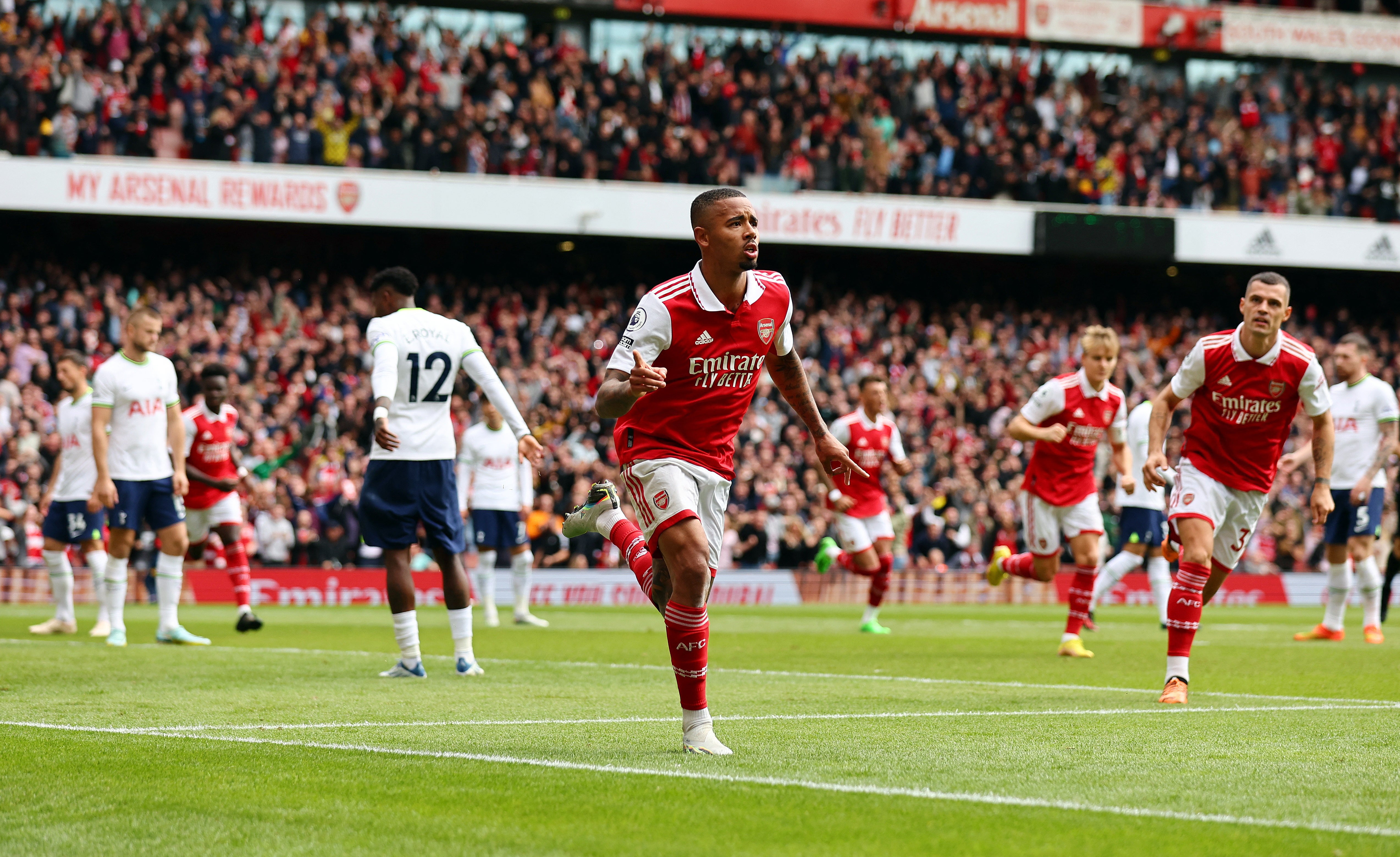Is Arsenal’s Mikel Arteta the most idealistic manager in the Premier League?
The Arsenal coach guided his side to a 3-1 north London derby win against Tottenham on Saturday

Your support helps us to tell the story
From reproductive rights to climate change to Big Tech, The Independent is on the ground when the story is developing. Whether it's investigating the financials of Elon Musk's pro-Trump PAC or producing our latest documentary, 'The A Word', which shines a light on the American women fighting for reproductive rights, we know how important it is to parse out the facts from the messaging.
At such a critical moment in US history, we need reporters on the ground. Your donation allows us to keep sending journalists to speak to both sides of the story.
The Independent is trusted by Americans across the entire political spectrum. And unlike many other quality news outlets, we choose not to lock Americans out of our reporting and analysis with paywalls. We believe quality journalism should be available to everyone, paid for by those who can afford it.
Your support makes all the difference.As Arsenal beat Tottenham Hotspur, Mikel Arteta came out with something that might have been as important as the three points. It wasn’t any talk of a title race, or anything as superficial as a message to the rest of the Premier League.
It was instead an instruction to his players.
Because, as commanding as Arsenal’s 3-1 win ended up looking, it didn’t quite feel like that at half-time. The game still felt fraught with risk at that point, primarily because of Arteta’s intentionally high line and the counters that invited.
Given how the defeat by Manchester United went, with the same pattern, it would have been natural if the Arsenal players experienced some doubt. Centre backs William Saliba and Gabriel had to cut out breaks at the last moment on more than one occasion. Son Heung-Min, meanwhile, looked like he was constructed specifically to counter against this Arsenal.
Arteta’s message in the face of this?
Well, not to worry about it all. To do the opposite. To double down.
He admitted he doesn’t talk about it. “When you don’t have the ball, if they win it, they can counter,” he said. “And the furthest the ball is, the more dangerous they are. So the closest to the six-yard box the ball is, the more dangerous Spurs are. And we know that, but Harry Kane is looking at our bench and puts the ball through two defenders, to Son. And you cannot defend that. There are certain things you cannot defend, and you have to accept them because it’s their quality and we have to play in our strengths, and what we cannot do is lose our strengths because we want to do something we are not.”
There is a clear logic to that, but it invites another question: Is Arteta now the most idealistic manager in the Premier League? Is he the most extreme purist?
Many will of course point to Pep Guardiola, but he was Arteta’s mentor, and the Basque is at a more formative stage of his career than the Manchester City coach.

That is the point when a manager’s idea tends to be its most uncomplicated. You only have to consider Guardiola’s own evolution. His approach has come full circle and round again, involving all manner of improvisations and evolutions to perfect it, like a grand composer.
Guardiola has incorporated more direct German pressing before going back to five-foot-eight false nines and then to Erling Haaland.
Some of that must of course be put in the context of Man City’s immense resources, but it certainly feels like Guardiola has now sufficiently adapted his approach so that his possession can be as protective as it is proactive. His team is arguably closer to Spain 2010 in that regard – which is obviously only a compliment. It is extreme control, although Haaland has stretched that a little.
Arsenal, by contrast, seem a touch closer to Guardiola’s initial approach with Barcelona. That is in terms of tactics rather than outright quality. They can control a game but there is always that inherent and profound risk that they can be immediately undone by a swift counter. It is that classic “glass jaw” that Guardiola has generally worked out how to get around.
Again, some of it comes back to resources and quality. Arteta is still building his team. It isn’t yet completely as he’d like it, but it is getting there. It means that he is even more committed to the approach, because that is what gets them through.

It was why this win was more important than even beating Spurs. It was about vindication of an idea after the United loss.
That was only sharpened by the extreme contrast between the teams. It was difficult to square this deeply defensive Spurs team with Antonio Conte's Juventus 2011-14, who offered the kind of pressing that Guardiola himself would have purred over.
This was far closer to Jose Mourinho’s Spurs. The side were backloaded, and only ever attacked in response to what Arsenal did.
If Arteta is now the most idealistic manager in the Premier League – although Roberto De Zerbi might now run him close at Brighton – it’s fair to ask whether Conte has become increasingly pragmatic, increasingly willing to compromise.
Saturday showed a real contrast, and perhaps where the game has been heading.



Join our commenting forum
Join thought-provoking conversations, follow other Independent readers and see their replies
Comments